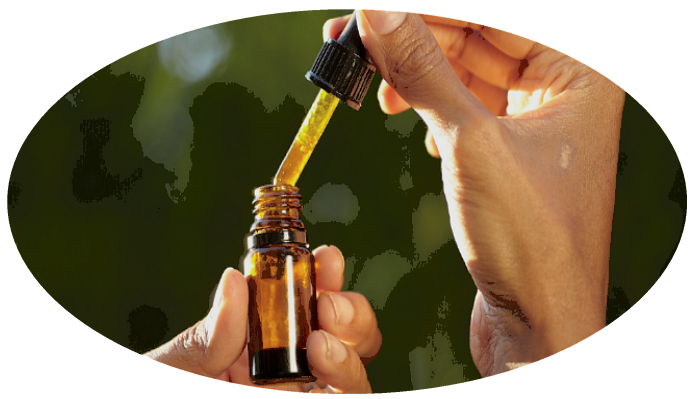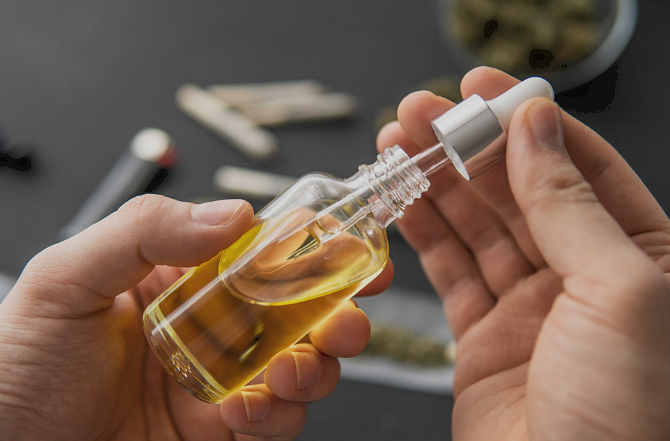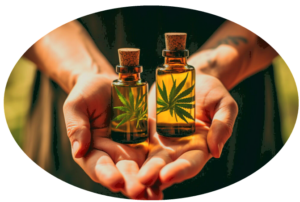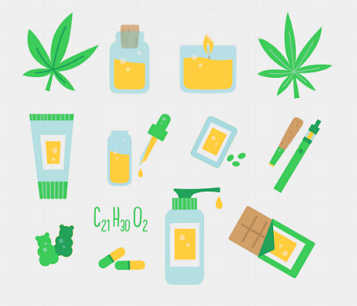Not sure what CBD dose or strength is right for you – or what that even means? You’re not alone; with all the letters, all the measurements and all the options you can feel like your eating Alphabet soup with a fork! CBD strength and dosage can seem confusing, so we’re here to break it down and make finding your level and your amounts easy as can be. Determining the dosage and strength of CBD that is optimal for you is just like designing a gym workout that benefits you the most. There is no ‘proper workout’ or ‘correct strength‘ for everybody, rather you have to design a workout that is unique to you. A workout that is tailored to your strength, your size, your sex, your experience and the purpose you are training for. Well, designing a ‘CBD workout’ is just like designing a physical workout – same variables, same uniqueness, sane elements. So, let’s break this down and give you the tools you need to be able to design the best CBD workout for you!
CBD STRENGTH – What’s that really mean?
The concentration of CBD oil is the amount of the active compound in the mixture. Producers of CBD drops generally define the CBD concentration by percentage or milligrams. So, when we refer to the CBD oil strength we are actually referring to the concentration of the active CBD compound in the form you are using, whether that be an oil, gummies, caplets, gels or other means. It’s about the volume of CBD found in an oil. For example, a 5000mg CBD oil might sound like it’s high strength, but if it’s in a 500ml bottle, that’s just 10mg of CBD per 1ml dropper. To understand the strength of your CBD, it’s important to know how much you’re getting per 1ml dosage (our recommended daily amount).
This can usually be done by dividing the total number of milligrams by the milliliters found in the bottle – or by reading the tips below.
CBD DOSE – Sorry, come again?
So now we understand what strength means when we are discussing CBD, the other critical factor we need to understand when planning our routine is dose. What does it mean when the charts and articles I read, and the recommendations I receive from doctors, refer to dose? Dose refers to the amount (volume, weight depending on form) of the CBD you are taking – the size essentially. In understanding Dosage and Strength you now have the necessary tools to be able to interpret a product, keep track of recommendations, and experiment to determine the right combinations for your unique set of variables. With this knowledge in your arsenal you are now able to determine the right amount for you.
A few basic factors include body weight, individual body chemistry, tolerance, and dosing goals (i.e., the condition you are treating).
This final category is important because treating anxiety is different than combating insomnia. The first may require a steady dosage throughout the day, while the latter may warrant a more concentrated dose just before bedtime. There also are some handy online calculators to help you make a more accurate determination based on your health goals, as well as many quick reference charts you can use to quickly ascertain dosage based on weight, age, tolerance and condition. The real game changer in that equation is what your treatment is trying to address. To best address this element, today CBD is infused in almost every product, with four different strengths: low, medium, high, and ultra-high potency. Low potency is best suited for new users. Let’s take a closer look at the 4 potencies and what research has shown to be their best uses and greatest efficacy.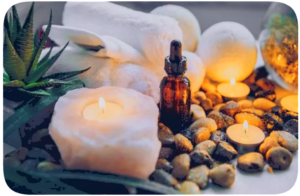
CBD STRENGTH — The 4 Potencies
When you look at the percentage of CBD in a product, you can easily classify the product in terms of low, medium, high, and ultra-high potency CBD. CBD potency refers to the concentration of CBD (cannabidiol) in a product. It is expressed in milligrams (mg) and determines how much CBD is contained in a specific amount of the product, such as a drop of oil, a capsule, or a gummy bear. The potency of CBD products can vary greatly, ranging from low-potency products with only a few milligrams of CBD per serving to high-potency products with several hundred milligrams of CBD per serving.
LOW POTENCY CBD
Most CBD products classified as low strength comprise 10% of the compound in the entire product. According to the reported cases by a large number of users, a 300Mg bottles of CBD (30 ml) per serving can quickly treat;
- Acute and moderate anxiety
- Body aches and acute pains
- Regular headaches
- Sleeping problems like insomnia
- Early stages of depression
If you are a newbie to the CBD regime, a low-potent CBD product is best suited to be added to your daily meals, drinks, or any other supplements. A single daily dose of the compound will improve your immune system and shield your nervous system.
MEDIUM POTENCY CBD
Products containing this CBD strength comprise 20 to 30% of CBD compounds, and the remaining percentage could be carrier oils like hemp seed oil or product chemical residues. This potency is the best option if you are trying to elevate both intakes of CBD and the benefits that come alongside the cannabinoids. You can use medium potency CBD dosage for;
- treating chronic inflammation
- Reducing moderate pains
- Treat digestive issues
- Treating anxiety disorders like GAD
- Improving your body energy levels
- Maintaining a good focus and concentration
HIGH POTENCY CBD
High potency strength is not for everyone, but extremely beneficial for some. CBD products that contain 40 to 60 % of the cannabis molecules are highly concentrated; they are used to treat specific health issues, like;
- Combating chronic pains and inflammation
- Treating arthritis, acne, and other skin disorders
- Helping in cancer treatments
- Alleviating mental disorders like PSTD
- Treating epilepsy
- Treating seizures associated with ADHD and Alzheimer’s
ULTRA-HIGH POTENCY CBD
Ultra-high potency CBD has over 60% of the cannabis derivative in a product; for example, 1500Mg of CBD in 20 ml of bottle oil, which means 1 ml of the oil, represents 75 Mg of CBD. The manufacturer extracts all hemp plant elements to create a potent CBD product, isolating pure CBD compounds. Unless you suffer from severe symptoms, a qualified cannabis doctor administers it, or you have a high tolerance and lengthy experience we would recommend that you should not use the ultra-high potency CBD strength type; stick to the low or medium range.
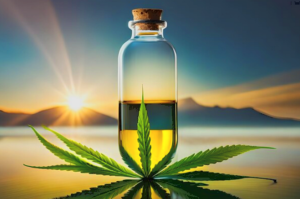 START LOW … AND THEN GO SLOW
START LOW … AND THEN GO SLOW
“The best practice and the industry standard for dosing is to guide new CBD users to ‘start low and go slow.’ This means starting at a dose of 10mg and slowly titrating up as needed by increasing the dose in 5mg increments every 2 to 3 days,” says Alex Capano, a Certified Registered Nurse Practitioner with the first doctorate in cannabinoid science in the United States, she’s an expert in the burgeoning field of CBD products.
The dose response curve looks like an inverted ‘U,’ or a bell-shaped curve, so the aim is to identify the peak of the individual’s response curve. “More is not always better!” emphasizes Capano. Therefore, you technically have to exceed your maximum dose to identify it. For example, if you felt the same or worse after adding 5mg, then return to the previous dose. This requires some effort and patience from the consumer. Dosing is highly individualized, and weight-based dosing in adult humans is still pretty generalised at this time. “In my observation, however, most people will achieve their optimal dose between 10mg and 40mg daily with high quality, full-spectrum CBD oil,” she adds.
“I recommend people start using CBD at home, 1-2 hours before bedtime,” Capano says. The most common side effect is drowsiness, so if someone experiences this, then a nighttime dose will not compromise their safety or their productivity. Also, a nighttime dose will likely result in a good night’s sleep.
Finally, tweak your dosage according to the type of CBD you’re using. Dosing depends on the delivery route. You need less from a tincture that goes under the tongue (sublingual) than you would from an oral product, like a gummy or a capsule. This is because some of the active ingredients are lost to the GI tract by something called first-pass metabolism when taken orally. Tinctures under the tongue bypass this route, and therefore you get more of the active ingredient (greater bioavailability) from sublingual delivery versus oral delivery.
UNIQUE AND YOU - LEARN WHAT WORKS
